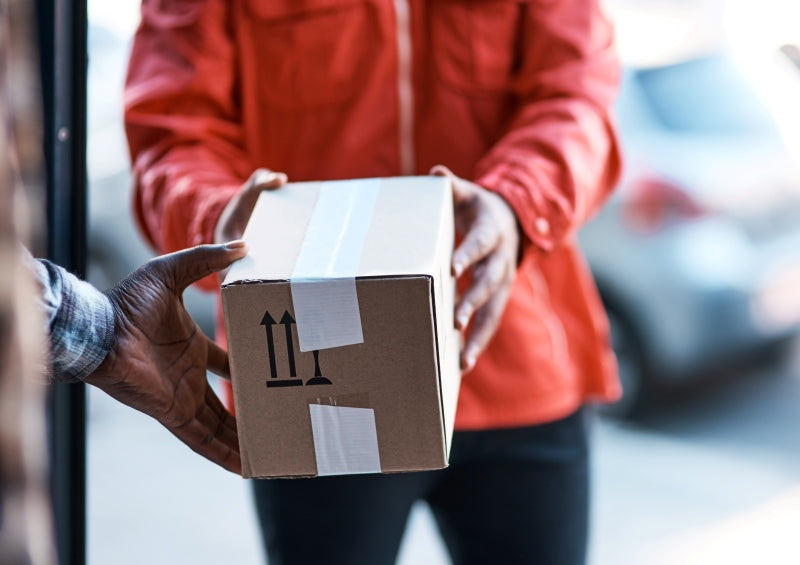We humans love convenience, right?
If you are like many people, you probably enjoy the convenience and speed of ordering stuff from instant delivery platforms. They deliver to you within 10 to 60 minutes, saving you the time and hassle of getting them yourselves.
But have you ever wondered what are the hidden costs of this service?
Maybe you save a few bucks on your wallet but pay with your health and the environment. How? Let’s explore the question.
Cost on your health
Instant delivery platforms may show that they are doing this to save you the hassle, and everything is out of good intentions, but at the end of the day, it's a business, and to make profits, these businesses can pull some tricks out of their sleeves. All of us have been at a spot where we are ordering from these instant delivery apps, and with some amazing discounts, you bought everything you need, but it's Rs 20 less than the minimum requirement for free delivery, so you end up buying some chips or any packaged food.
So, do you think it is out of your free will? If the answer is yes, then my friend, you are wrong. The apps are designed so that you are psychologically influenced to buy products with high-profit margins for the brands while you don’t just pay extra but also pay with your health. Moreover, instant delivery apps may reduce your physical activity, as you no longer need to walk or bike to the store. A sedentary lifestyle can also have negative effects on your health, such as lower metabolism, weaker muscles, and poorer mental health.
The Waste
Instant delivery platforms generate a lot of waste. Packaging materials, such as plastic bags, boxes, and containers, are often single-use and non-recyclable, which end up in landfills or oceans, polluting the environment and harming wildlife. Food waste is also a serious problem, as instant delivery app may overstock or discard unsold or expired products that could have been consumed or donated. According to the Food and Agriculture Organization, one-third of the food produced in the world is wasted, which amounts to about 1.3 billion tons per year. Now, this waste will be sitting in landfills for ages, destroying the environment to its bones. This is a loss of resources and a source of greenhouse gas emissions, as decomposing food releases methane, a potent greenhouse gas.
They are harmful
These platforms contribute to climate change and air pollution, as they rely on fossil-fuel-powered vehicles, such as motorcycles, cars, or vans, to transport the groceries. These vehicles emit carbon dioxide and other pollutants, which worsen the quality of the air and the health of the people.
According to a study by Accenture, the average carbon emission per delivery in the last-mile supply chain is 204 gCO2 globally. However, this figure varies depending on the region, the delivery vehicle mix, the parcel drop density, and the consumer demand. For example, the study found that the average carbon emission per delivery in India is 285 gCO2, which is significantly higher than the global average. This is partly due to the greater congestion in Indian cities compared to other regions.
If you order groceries every day for a year, you will be responsible for emitting about 0.104 metric tons of CO2, which is equivalent to driving a car for about 256 miles, which will cost Rs. 2227.77 to clean. If that doesn’t sound huge, then just remember that there are approximately 3 million people using these services daily. So when we calculate the total cost, it will be Rs. 66.83 crores. Where would this money come from? Obviously, our taxes. Plus we haven’t even calculated the price you pay for inhaling the polluted air and the amount of time you spend in traffic as hundreds of deliverymen are trying to take their motorcycle from that tiny gap between those two cars.
What can you do?
As you can see, ordering stuff from instant delivery platforms has it's own unsaid cons than it seems. It is expensive, unhealthy, wasteful, and harmful to you and the environment. Therefore, we urge you to regulate the usage of these apps, as obviously, you can’t cut them off from your lifestyle, but you can adopt more sustainable and responsible shopping habits. Here are some suggestions:
- Plan your meals and grocery list ahead of time, and buy only what you need and can consume within a reasonable period.
- Choose fresh, local, and seasonal produce, which are cheaper, healthier, and have lower environmental impact than imported, processed, and out-of-season products.
- Shop from your nearby store or online supermarket, which offers lower prices, better quality, and more variety than instant delivery apps. You can also save on delivery fees by opting for slower delivery options, such as standard or economy, or by selecting delivery to a collection point, such as a locker or a store.
- Use reusable bags, containers, and bottles, and avoid buying products that come in excessive or non-recyclable packaging. You can also compost your organic waste, such as peels, cores, and seeds, and use it as fertilizer for your plants or garden.
- Walk, bike, or use public transport to get to the store, or share a ride with a friend or neighbor, if possible. This will reduce your carbon footprint, save you money, and improve your fitness and mood. Plus, you’ll have a reason to step out of your dungeon for once.
By following these tips, you will save money and improve your health, protect the environment, and support your local community!


